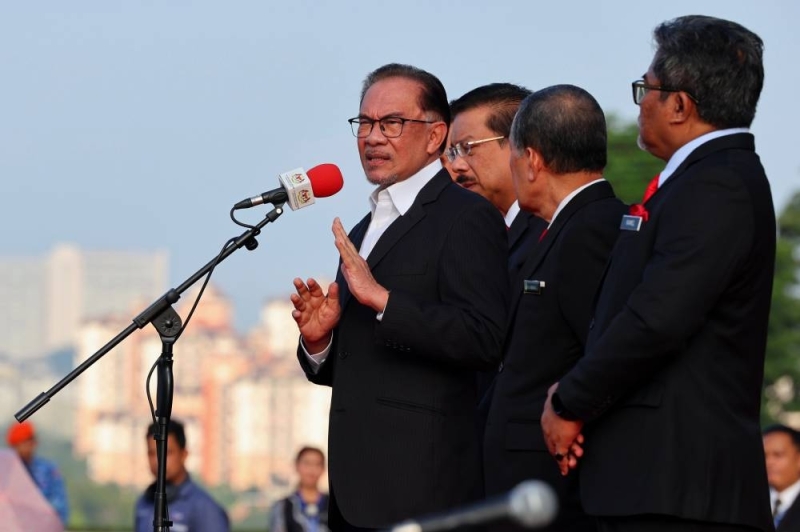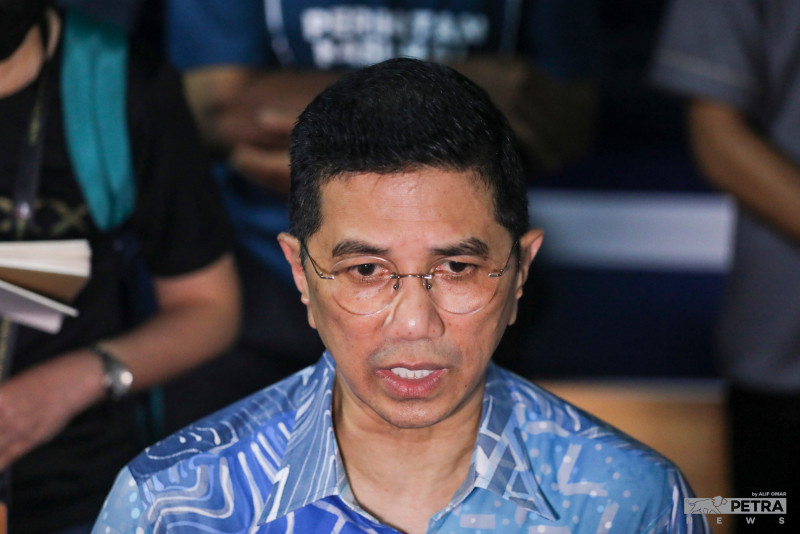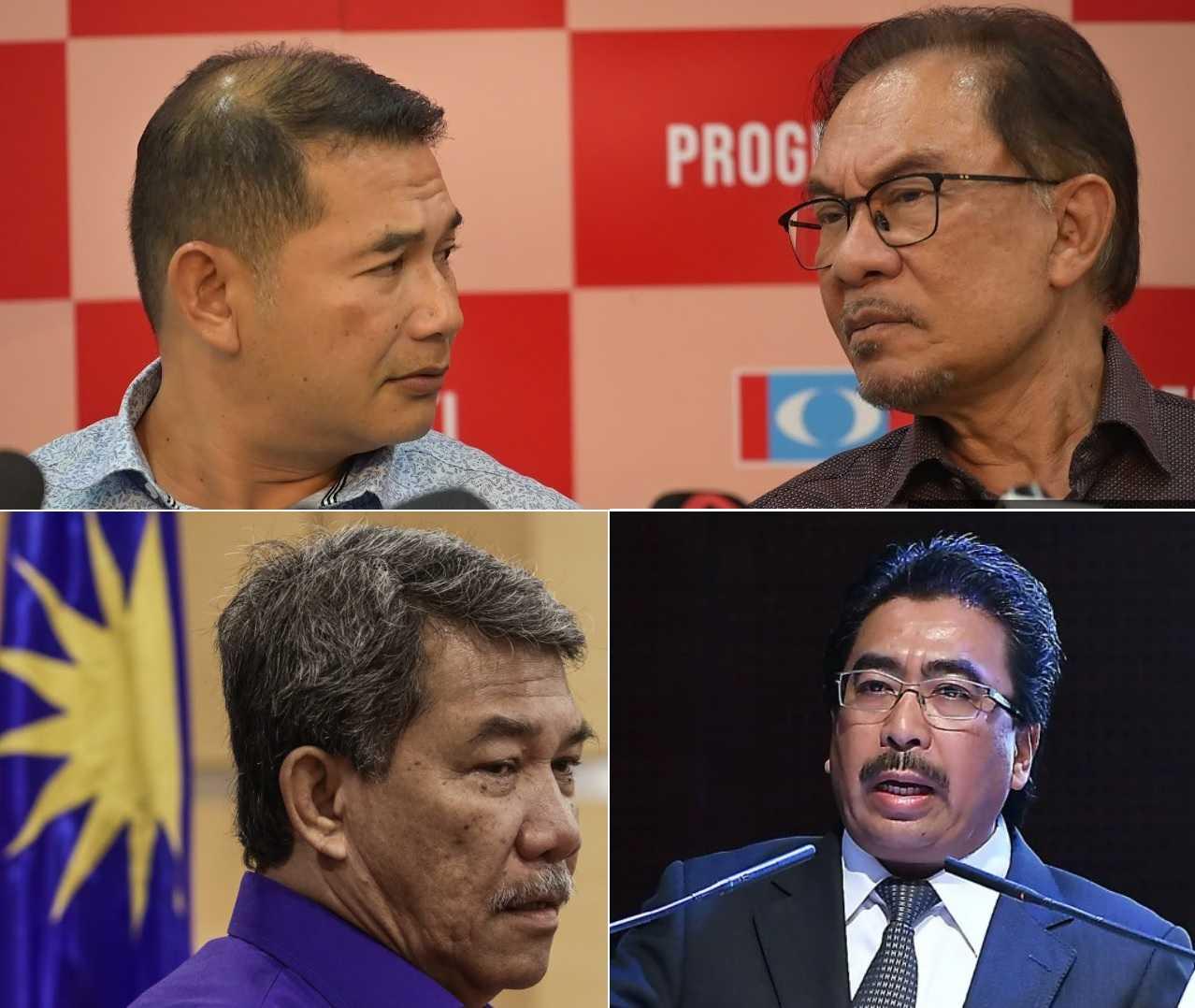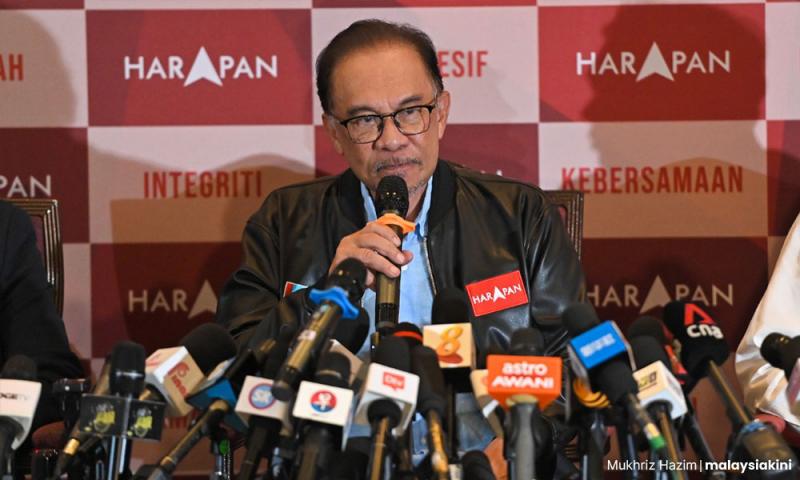
S Thayaparan
“Like Caesar, he is surrounded by enemies, and something's underway, but it has no face, yet everybody in the loop knows.”
COMMENT | For those of us Malay and non-Malay who do not want to see our country slide into a theocratic stupor, Anwar Ibrahim as prime minister of this country has bought us some time.
It remains to be seen how much time Anwar has to realise his Malaysian dream that he talks about so seductively in the press, which needs to be forged by not only realpolitik but with firm leadership made difficult by the fact that Pakatan Harapan does not have a strong mandate.
This is not so much a unity government but rather a compromise government because Perikatan Nasional has upended the establishment.
The establishment considers Anwar and Harapan (rightly so) the moderate centre-right coalition that would maintain the status quo, instead of the far-right ethnonationalist PN which would turn this country into a theocratic cesspool, thereby pitting Malaysia against its various Southeast Asian neighbours, and drawing Western proxy state actors further into this country.
Anwar not only has to deal with the sheathed (so far) daggers amongst his coalition partners but also balance the expectations of the Harapan base who some have already canonised him as the messiah who would save this country.
Within this coalition government are political operatives who have a great animus against everything Harapan stands for and are embroiled in inter-party power plays which would infect the governing of this country.
They will not be blamed because there would be a mendacious theocratic opposition who blame Harapan and Anwar specifically for failures made by people who want to derail Anwar’s reforms agenda and who are most probably aligned with them.
PN chairperson Muhyiddin Yassin said, “PN will play a role as an authoritative opposition to bring the voice of the people to Parliament and ensure the integrity and corruption-free governance of the government is in line with caring, clean, and stable (PN) principles.”
This is a cunning strategic move and is indicative of how virulent the opposition Anwar would have to endure. PAS is really calling the shots in PN and everyone knows it.
Now, they can tell their supporters that they would rather not be in a pro-Jewish, commie-loving, anti-Islamic government headed by someone who was not only convicted of sodomy but was also corrupt. Why in that order I will never understand, but there you go.
PN working in concert with people inside the Harapan government will attempt to draw Anwar and the DAP into countless culture wars and portray Anwar as a race traitor because of who he chooses to align with.
The DAP is going to have it extremely rough. For years, the running dog narrative they used against the MCA is going to return to bite them in their behinds like it did when they were briefly in power.
Now, nobody can blame Dr Mahathir Mohamad and the power dynamic in Harapan coupled with Umno and charlatans from Borneo is going to be extremely difficult to navigate the political terrain to strengthen the secular and democratic safeguards of this country.
“Like Caesar, he is surrounded by enemies, and something's underway, but it has no face, yet everybody in the loop knows.”
– Oliver Stone’s JFK
COMMENT | For those of us Malay and non-Malay who do not want to see our country slide into a theocratic stupor, Anwar Ibrahim as prime minister of this country has bought us some time.
It remains to be seen how much time Anwar has to realise his Malaysian dream that he talks about so seductively in the press, which needs to be forged by not only realpolitik but with firm leadership made difficult by the fact that Pakatan Harapan does not have a strong mandate.
This is not so much a unity government but rather a compromise government because Perikatan Nasional has upended the establishment.
The establishment considers Anwar and Harapan (rightly so) the moderate centre-right coalition that would maintain the status quo, instead of the far-right ethnonationalist PN which would turn this country into a theocratic cesspool, thereby pitting Malaysia against its various Southeast Asian neighbours, and drawing Western proxy state actors further into this country.
Anwar not only has to deal with the sheathed (so far) daggers amongst his coalition partners but also balance the expectations of the Harapan base who some have already canonised him as the messiah who would save this country.
Within this coalition government are political operatives who have a great animus against everything Harapan stands for and are embroiled in inter-party power plays which would infect the governing of this country.
They will not be blamed because there would be a mendacious theocratic opposition who blame Harapan and Anwar specifically for failures made by people who want to derail Anwar’s reforms agenda and who are most probably aligned with them.
PN chairperson Muhyiddin Yassin said, “PN will play a role as an authoritative opposition to bring the voice of the people to Parliament and ensure the integrity and corruption-free governance of the government is in line with caring, clean, and stable (PN) principles.”
This is a cunning strategic move and is indicative of how virulent the opposition Anwar would have to endure. PAS is really calling the shots in PN and everyone knows it.
Now, they can tell their supporters that they would rather not be in a pro-Jewish, commie-loving, anti-Islamic government headed by someone who was not only convicted of sodomy but was also corrupt. Why in that order I will never understand, but there you go.
PN working in concert with people inside the Harapan government will attempt to draw Anwar and the DAP into countless culture wars and portray Anwar as a race traitor because of who he chooses to align with.
The DAP is going to have it extremely rough. For years, the running dog narrative they used against the MCA is going to return to bite them in their behinds like it did when they were briefly in power.
Now, nobody can blame Dr Mahathir Mohamad and the power dynamic in Harapan coupled with Umno and charlatans from Borneo is going to be extremely difficult to navigate the political terrain to strengthen the secular and democratic safeguards of this country.
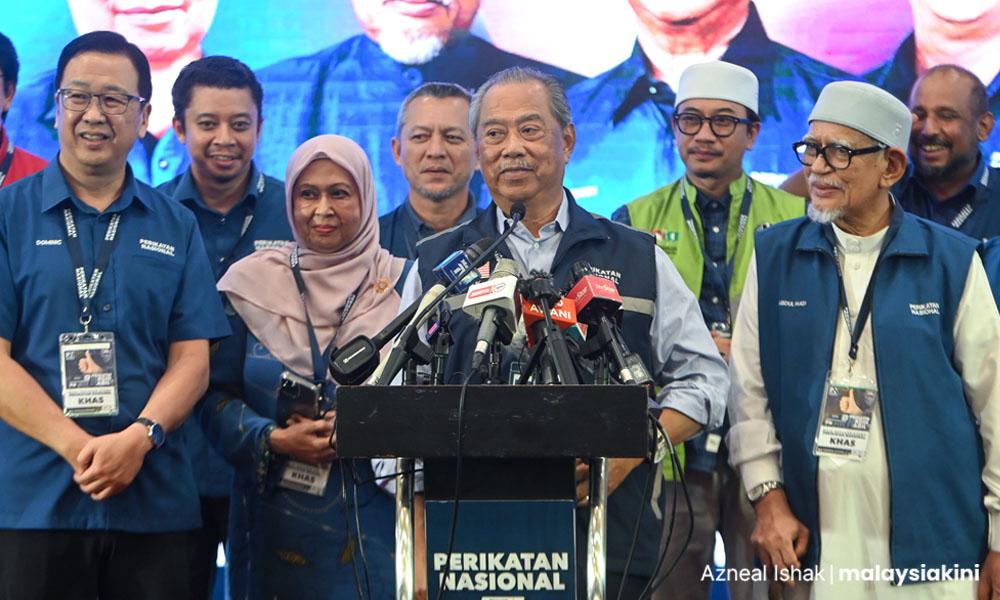
PN chairperson Muhyiddin Yassin
Malay vote
PAS now has the perfect “Malay” opposition unconstrained by the needs or wants of the non-Malays. This is exactly the position they want to be in, as a vox populi of the Malay right unencumbered by any notions of multiculturalism and egalitarianism.
This is why PAS secretary-general Takiyuddin Hassan says this - "This is to respect the trust and mandate of the majority, especially the voters who chose PAS and PN during the 15th general election.”
The majority here is the majority of Malays who bought into the anti-DAP, pro-Jewish propaganda used against Harapan and Anwar.
Keep in mind the Sheraton traitors were motivated by the fact that Harapan when it had brief power, was losing the Malay vote.
This was why someone like the disgraced Azmin Ali was talking in the press about being unapologetic about the bumiputera agenda - "We must be brave and not hesitate in fulfilling our promises, especially on the Malay and bumiputera agenda, which is an integral part of the national agenda.
"We must do so without feeling apologetic or fearful of the criticism of others," he said in March 2019.
Yes, Anwar in his first presser assured that Malay rights and Islam would be protected but this will never be enough for the likes of PN.
What PN wants is to dismantle secular and democratic norms (PAS president Abdul Hadi Awang has more or less said this in various ceramah) and would cajole Anwar to do the same.
What they desire is that Malay rights trump non-Malay rights and this could mean anything from Islamic sensitivities when it comes to certain economic sectors and the tightening of our social spaces in deference to Malay preoccupations. Nobody wants to hear this now, but this is the game plan.
To counter the political insurgency of PAS, what is needed is not political bromides and ridiculous propaganda like “Bangsa Malaysia” but rather effective policies on the economy and the environment.
The two are not mutually exclusive and should centre around the kind of policies that include entitlement programmes that favour the poor, young, and disenfranchised of the Malay community, which would necessitate strong federal-level engagement in the rural communities.
Also important (and PN knows this) is electoral delineation and various other electoral arcana, which need to be addressed to curb the unfair weightage of voters and the gerrymandering which favours political groups whose agenda is anathema to democratic norms.
Furthermore, term limits on political operatives need to be addressed.
However, the two most important apparatuses that need a strong presence in positions of power are the state security apparatus and the vast religious bureaucracy because these would be the front lines against extremist strategies.
Keep in mind that PN with its extremist strategies wants a confrontation with the state security apparatus because it makes them martyrs in the eyes of the base and sympathetic would-be voters especially if the economy and environment are tanking.
We need leadership in state security that understands the threats we are facing and sublimate the decades-long racial and religious indoctrination.
In other words, “our boys” understand the regional implications of coddling extremism in this country but can also balance democratic ideas and norms, such as free speech and freedom of assembly. Both of which are political strategies and require strategic federal political responses.
Malay vote
PAS now has the perfect “Malay” opposition unconstrained by the needs or wants of the non-Malays. This is exactly the position they want to be in, as a vox populi of the Malay right unencumbered by any notions of multiculturalism and egalitarianism.
This is why PAS secretary-general Takiyuddin Hassan says this - "This is to respect the trust and mandate of the majority, especially the voters who chose PAS and PN during the 15th general election.”
The majority here is the majority of Malays who bought into the anti-DAP, pro-Jewish propaganda used against Harapan and Anwar.
Keep in mind the Sheraton traitors were motivated by the fact that Harapan when it had brief power, was losing the Malay vote.
This was why someone like the disgraced Azmin Ali was talking in the press about being unapologetic about the bumiputera agenda - "We must be brave and not hesitate in fulfilling our promises, especially on the Malay and bumiputera agenda, which is an integral part of the national agenda.
"We must do so without feeling apologetic or fearful of the criticism of others," he said in March 2019.
Yes, Anwar in his first presser assured that Malay rights and Islam would be protected but this will never be enough for the likes of PN.
What PN wants is to dismantle secular and democratic norms (PAS president Abdul Hadi Awang has more or less said this in various ceramah) and would cajole Anwar to do the same.
What they desire is that Malay rights trump non-Malay rights and this could mean anything from Islamic sensitivities when it comes to certain economic sectors and the tightening of our social spaces in deference to Malay preoccupations. Nobody wants to hear this now, but this is the game plan.
To counter the political insurgency of PAS, what is needed is not political bromides and ridiculous propaganda like “Bangsa Malaysia” but rather effective policies on the economy and the environment.
The two are not mutually exclusive and should centre around the kind of policies that include entitlement programmes that favour the poor, young, and disenfranchised of the Malay community, which would necessitate strong federal-level engagement in the rural communities.
Also important (and PN knows this) is electoral delineation and various other electoral arcana, which need to be addressed to curb the unfair weightage of voters and the gerrymandering which favours political groups whose agenda is anathema to democratic norms.
Furthermore, term limits on political operatives need to be addressed.
However, the two most important apparatuses that need a strong presence in positions of power are the state security apparatus and the vast religious bureaucracy because these would be the front lines against extremist strategies.
Keep in mind that PN with its extremist strategies wants a confrontation with the state security apparatus because it makes them martyrs in the eyes of the base and sympathetic would-be voters especially if the economy and environment are tanking.
We need leadership in state security that understands the threats we are facing and sublimate the decades-long racial and religious indoctrination.
In other words, “our boys” understand the regional implications of coddling extremism in this country but can also balance democratic ideas and norms, such as free speech and freedom of assembly. Both of which are political strategies and require strategic federal political responses.
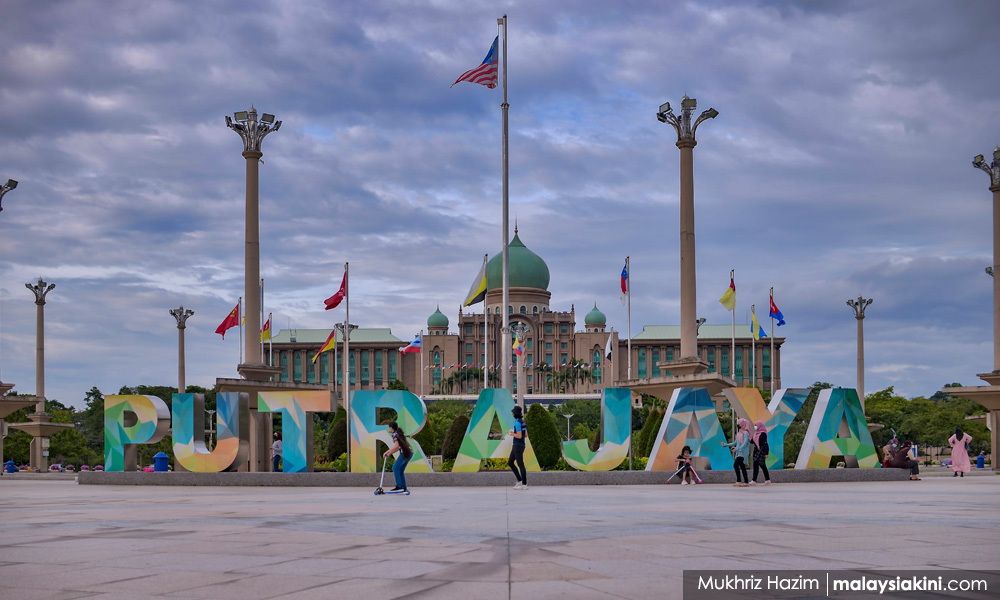
Reform agenda
Meanwhile, the vast religious bureaucracy has to be trimmed, with the money going to underappreciated civil servants who could play a direct part in the reform agenda and this includes not only underpaid personnel of the state security apparatus but the civil service, teachers, doctors, municipal council workers who find themselves on the front lines as they did during the Covid pandemic.
Nathaniel Tan was right about Harapan needing a narrative but what it needs is a Malay narrative because the non-Malay polity is not the target or should be of Anwar's cabinet.
In rhetoric and policy, Anwar has to get Harapan to commit to a Malay-centric reform agenda that does not marginalise or demonise the non-Malay community.
Why spend money on religious programmes when money could be spent on improving infrastructure, healthcare, and education for rural Malay communities?
PAS and PN are gloating that they are a strong Malay opposition and who knows, sometime soon, they could be joined by Umno/BN.
What they are missing is that the Malay demographic who for so long voted for Umno changed their vote to Bersatu and PAS.
The funny thing about people switching their votes is that their votes can switch at any time. The first time is difficult but once done, they could be persuaded to change their vote again.
Anwar as the prime minister of this country should be honest, not only about his Malay-centric agenda but also about the disparate groups within Harapan.
Do not gaslight the public thinking that the echo chambers will guarantee political power. This did not work in the Sheraton Move and it will certainly not work now that the “Malay” opposition has come to fruition.
Harapan needs to be honest, especially when dealing with racial and religious issues, choosing battles that need to be won especially when it comes to secular and democratic guard rails but not be baited by PAS and PN to always demonstrate Harapan's racial and religious bona fides.
This will be a trying time, especially for those of us who fear the direction of the country and who have not bought into the personality cults and propaganda.
It is also an exhilarating time because coalition politics actually means that politicians have to compromise and make deals which ultimately means that a bigger pool of interests could potentially be satisfied.
Some people have said that Anwar is a political chameleon. Irony, like revenge, is a dish best served cold.
Anwar has to appeal to a broad spectrum of potential voters while appearing to satisfy specific interest groups. This could be a game Anwar plays well, provided he has the support he needs and the messaging is on point.
There are positive paths this country could take but it all depends if Saudara Anwar is not easily spooked.
S THAYAPARAN is Commander (Rtd) of the Royal Malaysian Navy. Fīat jūstitia ruat cælum - “Let justice be done though the heavens fall.”



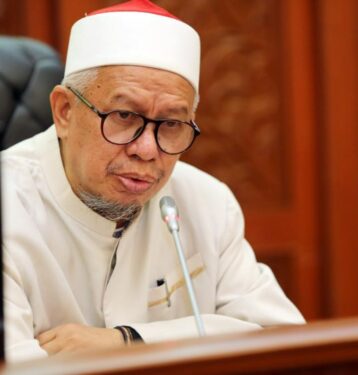
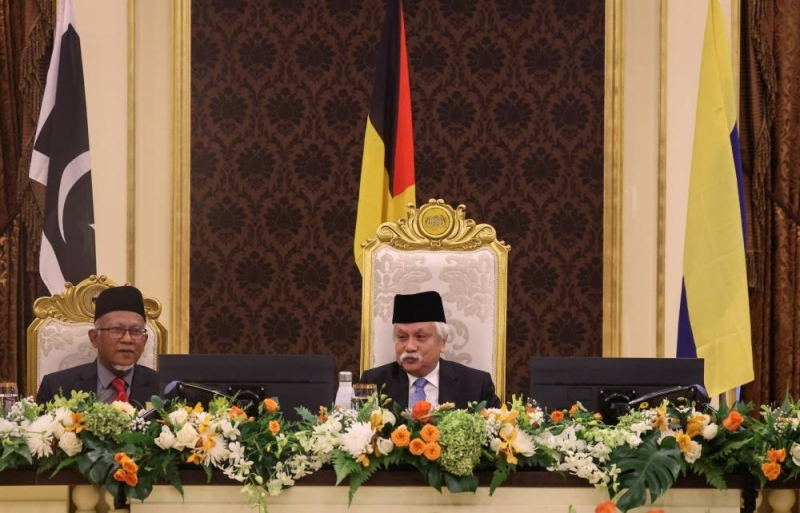

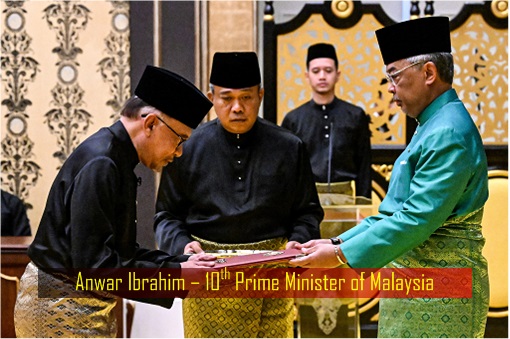
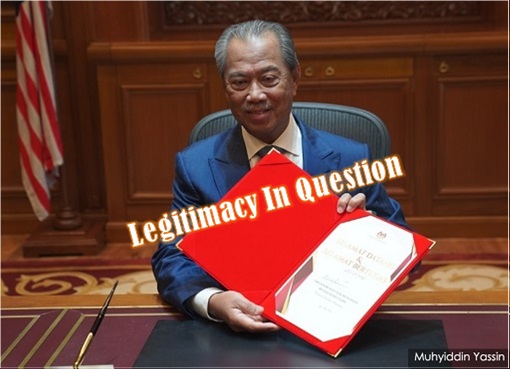
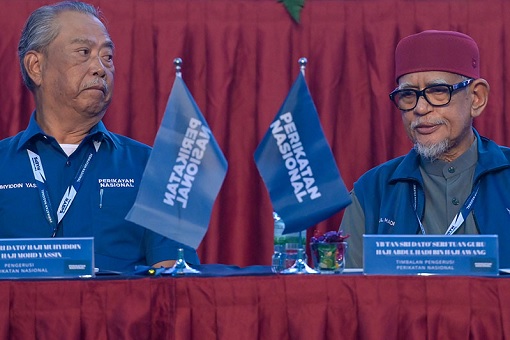
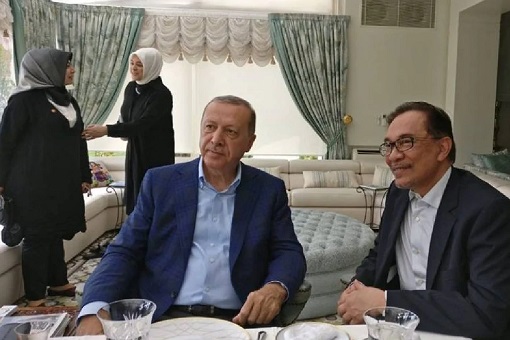
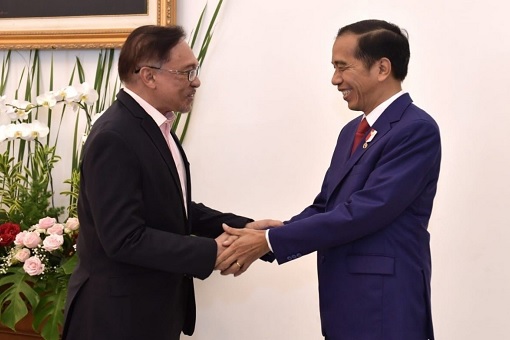
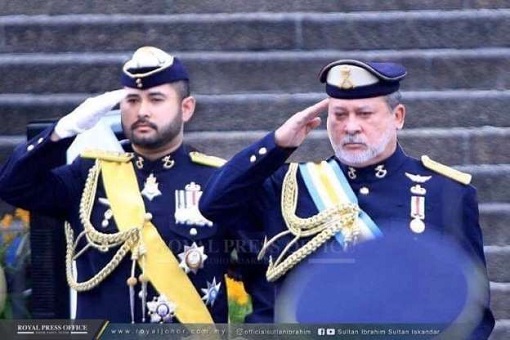
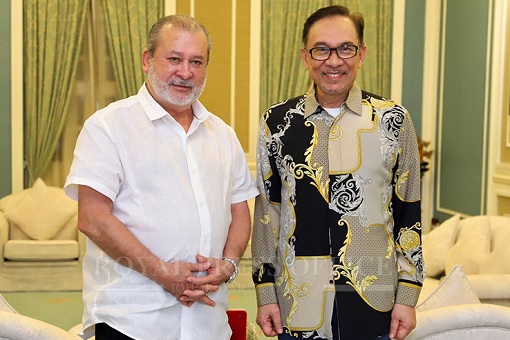
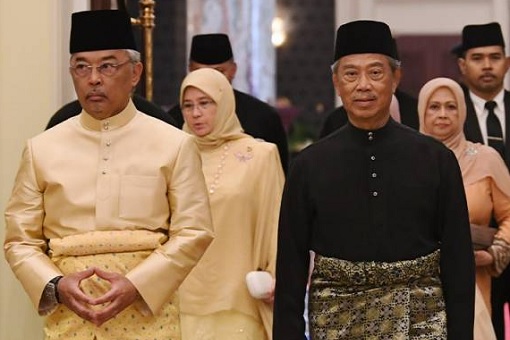
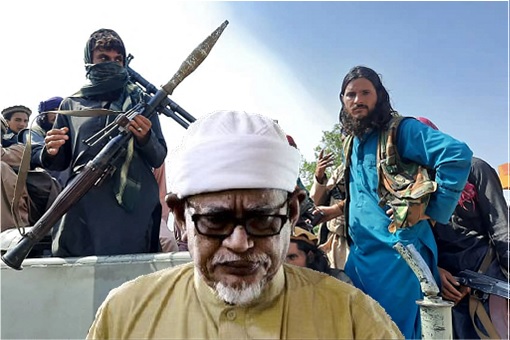
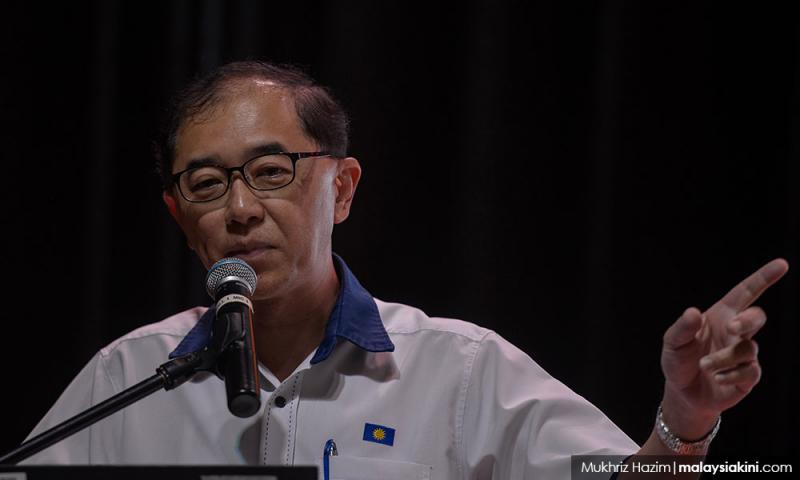
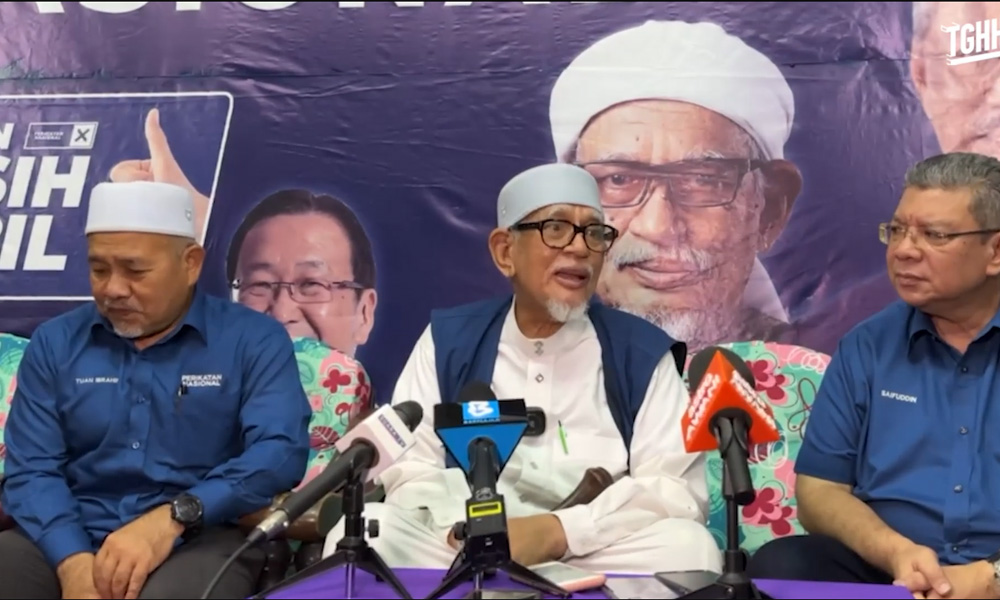


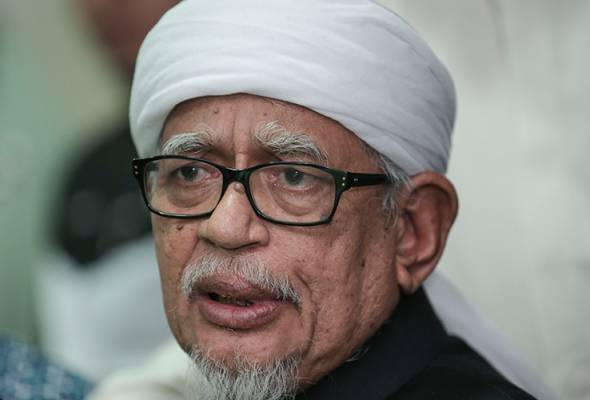
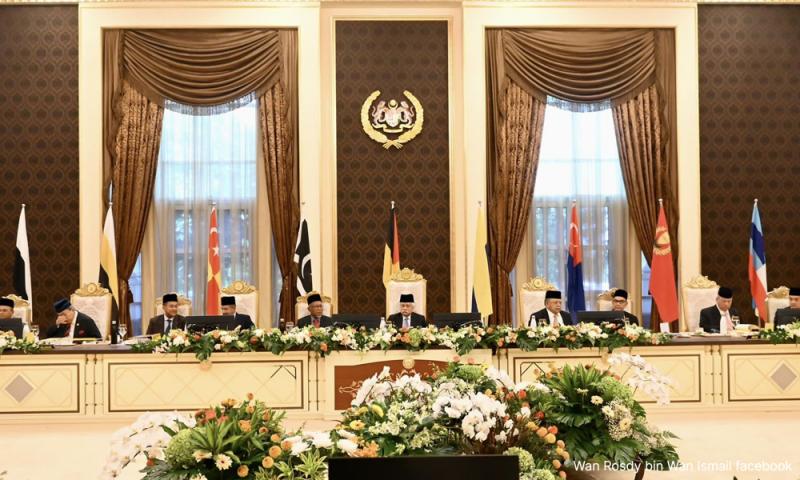
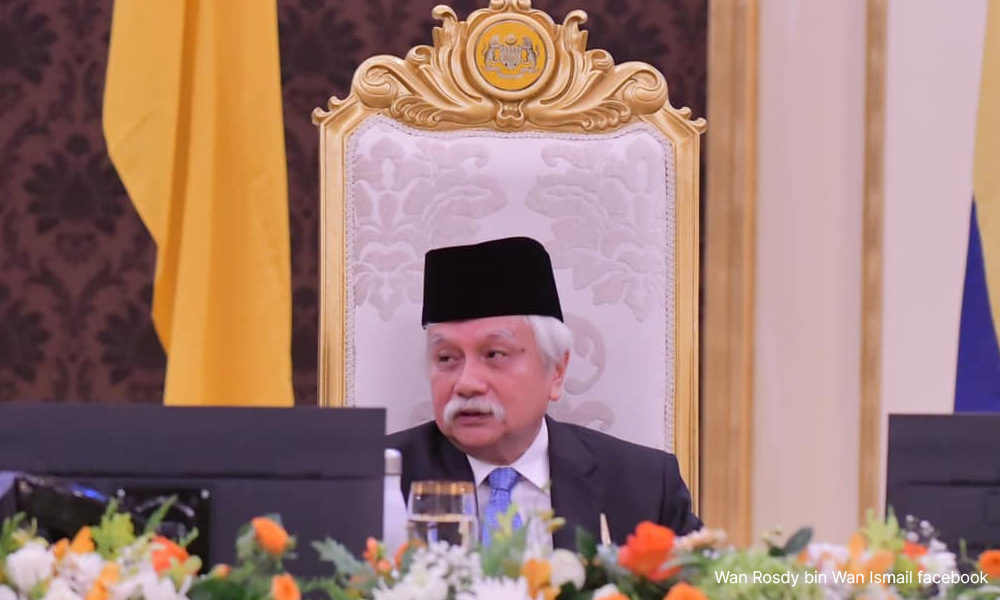
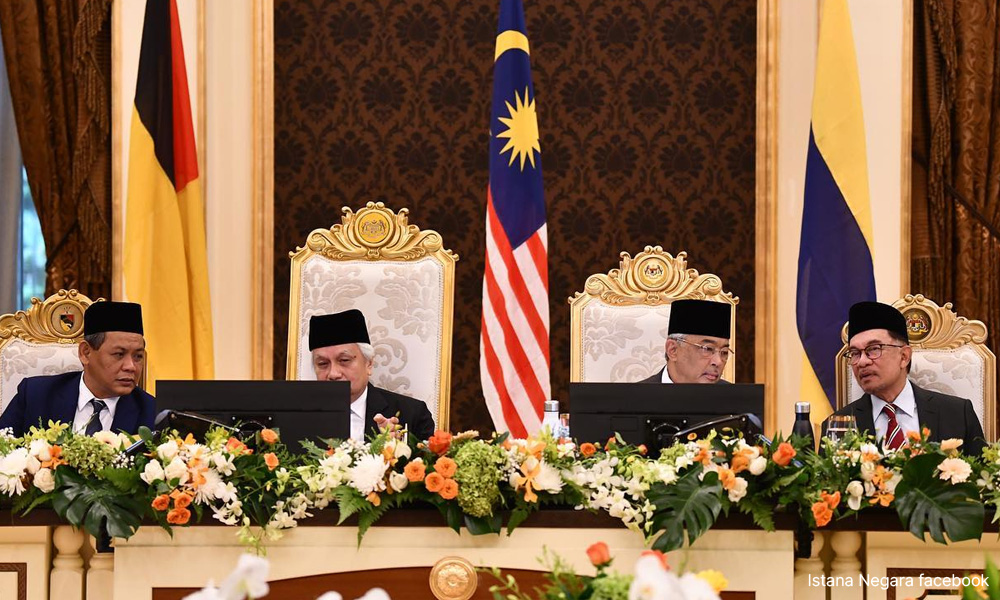
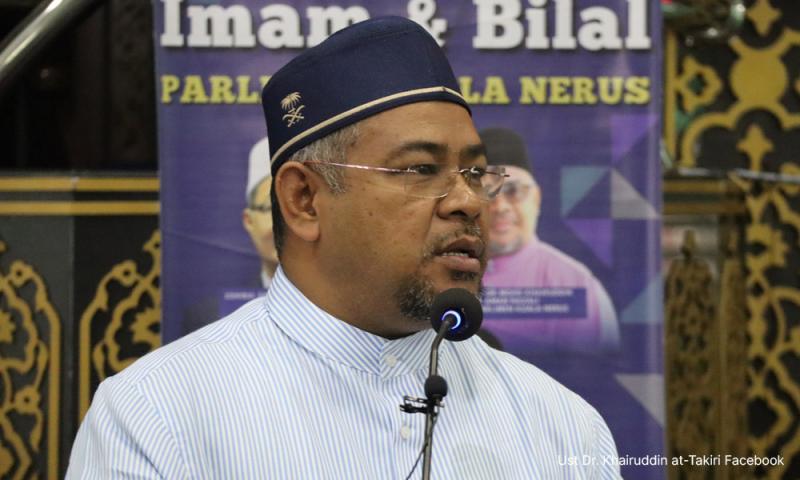





 Oh Ei Sun.
Oh Ei Sun. James Chin.
James Chin.